Making your home more eco-friendly doesn’t have to be expensive or complicated. In fact, many sustainable living improvements can save you money on utility bills while reducing your environmental impact. Whether you’re a homeowner in Vancouver or renting an apartment, there are practical steps you can take to create an eco friendly home. Vancouver’s climate – with its mild, wet winters and warm summers – offers plenty of opportunities to conserve energy and water. And with high local housing costs, cutting monthly bills is a welcome relief for families and renters alike. Most importantly, greener choices at home help reduce your carbon footprint. Let’s dive into six simple ways you can embrace a more eco conscious lifestyle at home – achieving a win-win of sustainable living and saving money. These green home ideas range from quick DIY fixes to smart investments that pay off over time.
1. Switch to Energy-Efficient Lighting and Appliances
Switching out old light bulbs for LEDs is one of the easiest upgrades for an energy efficient house. LED bulbs use up to 75% less energy and last many times longer than traditional incandescent bulbs. That means you’ll not only cut your power usage, but also spend less on replacement bulbs. Over time, the savings on your electric bill really add up, especially in a place like Vancouver where lighting is used heavily during long winter nights.
Upgrading to energy-efficient appliances is another impactful step. Home appliances like fridges, washers, and dryers often make up a large portion of your energy use. When it’s time to replace or buy new appliances, look for Energy Star–rated models. These use less electricity and water while still delivering great performance. For instance, modern dishwashers and washing machines can use far less energy and water than older models. And simply changing how you use appliances can save money: wash laundry in cold water, run full dishwasher loads, and air-dry clothes when possible. Even unplugging electronics when not in use can cut down on wasted “phantom” power. These small tweaks will reflect in your utility bill and move you toward a more eco friendly home.
2. Optimize Heating and Cooling with Smart Upgrades
Keeping your home comfortable uses a lot of energy, so improving your heating and cooling efficiency is key to sustainable home improvements. Installing a smart thermostat is a simple upgrade that can yield big savings. These devices learn your schedule and adjust the temperature automatically to avoid wasting energy when you’re out or sleeping. In Vancouver’s climate – where heating is needed in winter and many homes don’t have central air conditioning – a smart thermostat can ensure you only use energy when you need it.
Another major upgrade is improving your heating system itself. If you have an older furnace or baseboard heaters, upgrading to a high-efficiency furnace or a heat pump can drastically cut energy use. Heat pumps are especially effective in Vancouver’s mild climate because they both heat and cool your home efficiently. While the upfront cost is higher, rebates and grants are available in British Columbia to make the switch more affordable. Over time, the energy savings can be substantial, and you’ll enjoy a more comfortable home environment. Even if you aren’t ready for a full replacement, regular maintenance of your furnace or boiler – like changing filters and servicing equipment – can keep it running more efficiently. Renters can also play their part by reducing drafts and using fans strategically to stay comfortable.
3. Improve Insulation and Seal Air Leaks
One of the smartest sustainable home improvements you can make is to insulate and draft-proof your home. Why pay to heat the outdoors? In older Vancouver houses, a lot of heat can escape through thin walls, attics, or drafty windows. By adding insulation and sealing up cracks, you help your home stay warm in winter and cool in summer with less work from your heating or cooling system.
Start with easy fixes: use weather-stripping and caulking around doors, windows, and any gaps where drafts occur. Even renters can use removable options to improve comfort. Adding door sweeps to exterior doors also stops cold air from sneaking in. Next, consider your insulation. Topping up attic insulation or insulating crawlspaces can have a fast payback in energy savings. If your home has single-pane windows, upgrading to double-pane or using heavy curtains can make a noticeable difference. Not only do these eco friendly design upgrades lower your bills, they also improve comfort by eliminating drafts and keeping indoor temperatures stable. You’ll notice fewer cold spots in winter and less heat creeping in during the summer.
4. Save Water (and Energy) with Efficient Fixtures
Conserving water is another important part of an eco conscious lifestyle, and it can save you money on utility bills. A great place to start is your shower. Modern low-flow showerheads dramatically reduce water usage without sacrificing pressure. Swapping out an older showerhead for a low-flow version is a quick DIY project that pays back almost immediately in savings.
Similarly, install faucet aerators to cut down water use while maintaining good water pressure. These are inexpensive and easy to install. Fixing leaks is another huge money-saver: a dripping tap can waste thousands of liters of water per year. If it’s hot water that’s leaking, you’re not only wasting water but also energy to heat it. Most faucet leaks can be fixed cheaply with new washers.
Consider upgrading to a low-flow toilet if you still have an older model. Modern toilets use far less water per flush. Outdoors, using a rain barrel to collect rainwater for your garden is another smart choice – especially in rainy Metro Vancouver. It reduces water bills and provides chlorine-free water that plants thrive on. These environmentally friendly house tips around water not only save money but also prepare your home for dry summer months when water restrictions are common.
5. Embrace Eco-Conscious Habits and Reduce Waste
Making your home eco-friendly isn’t just about equipment – it’s also about daily habits. Adopting eco friendly design principles in your lifestyle can significantly reduce waste and lower expenses. For example, cut down on single-use plastics by using reusable bottles, bags, and containers. Vancouver’s tap water is safe and tasty, so switching from bottled water to filtered tap water saves money and reduces waste.
Consider switching to natural or DIY cleaning products made from simple, safe ingredients like vinegar and baking soda. These are cost-effective, healthier, and avoid harsh chemicals in your home. Reduce household waste by recycling and composting. Vancouver provides green bins for food scraps, and composting helps reduce landfill waste while enriching soil. Families and DIY enthusiasts can also get creative with upcycling or buying second-hand furniture. This not only saves money but also gives items a second life.
Energy-saving habits also make a difference: turn off lights when leaving a room, unplug electronics, and use natural sunlight strategically to warm or cool your home. Even small actions like closing blinds at night to retain heat or growing indoor plants for better air quality help build a truly eco friendly home. Over time, these habits lower bills and reinforce a sustainable living mindset.
6. Generate Your Own Renewable Energy
Have you considered producing your own power? Installing solar panels is a fantastic long-term strategy for an eco friendly design that saves money over time. Solar photovoltaic panels convert sunlight into electricity for your home. While the upfront cost can be significant, rebates and grants in British Columbia help make solar more affordable. Once installed, solar panels can provide free electricity for decades, slashing your utility bills.
For a typical Vancouver home, a solar array can cover a large portion of yearly electricity needs. Through net metering, excess power generated in summer can be sent back to the grid for credit, reducing costs even further. Pairing solar panels with a home battery system can also provide backup power during outages, offering extra peace of mind. Beyond cost savings, generating your own renewable energy for homes adds to your home’s value and gives you greater energy independence. Even if you live in a condo or rental where installing panels isn’t possible, you can still choose to support green energy through your utility provider, or explore community solar options. For many homeowners, solar power is the ultimate step in achieving sustainable home improvements.
Conclusion
By implementing these six strategies, you can transform your living space into a green home that’s kind to both the environment and your wallet. From quick fixes like swapping bulbs to bigger investments like solar panels or heat pumps, every step toward efficiency pays off over time. Not only will you enjoy lower utility bills, but you’ll also have the satisfaction of contributing to a healthier planet.
The best part is that many of these changes work together – an eco friendly home with good insulation and efficient systems maximizes the benefits of renewable energy, for example. Start with the simple projects you can do this week, and plan for the larger upgrades as you’re able. Living in an energy-efficient house is an ongoing journey, but one that leads to a brighter, healthier, and more affordable future. By embracing these environmentally friendly house tips, homeowners, renters, families, and DIY enthusiasts in Vancouver and across Canada can take pride in creating truly eco-conscious homes. Small steps make a big impact – both on the planet and on your monthly budget – so go ahead and take that first step toward a greener home today.
Frequently Asked Questions
1. What is the easiest way to make my home eco friendly?
One of the simplest steps is switching to LED light bulbs and installing low-flow showerheads. These small changes are low-cost, quick to do, and start saving money immediately.
2. How can renters create a more eco friendly home?
Renters can focus on easy upgrades that don’t require major renovations, such as using smart power strips, draft stoppers, water-saving showerheads, and energy-efficient LED bulbs. Daily eco conscious habits, like recycling and reducing single-use plastics, also make a big difference.
3. Are eco friendly home improvements expensive?
Not necessarily. Many sustainable home improvements like sealing drafts, adding weather stripping, or switching to energy-efficient lighting are very affordable. Larger projects, like heat pumps or solar panels, may cost more upfront but can pay for themselves over time through energy savings and rebates.
4. What are some environmentally friendly house tips for families in Vancouver?
Families can compost food scraps, recycle consistently, use reusable containers, and teach kids simple energy-saving habits like turning off lights. In Vancouver, municipal green bins and water-saving rebates make it easier for families
Browse Other Vancouver Westside Communities
MLS® Listings in Vancouver West | Homes for Sale, $400,000 - $500,000
- All Listings
- Under $100,000
- $100,000 - $200,000
- $200,000 - $300,000
- $300,000 - $400,000
- $400,000 - $500,000
- $500,000 - $600,000
- $600,000 - $700,000
- $700,000 - $800,000
- $800,000 - $900,000
- $900,000 - $1,000,000
- Over $1,000,000


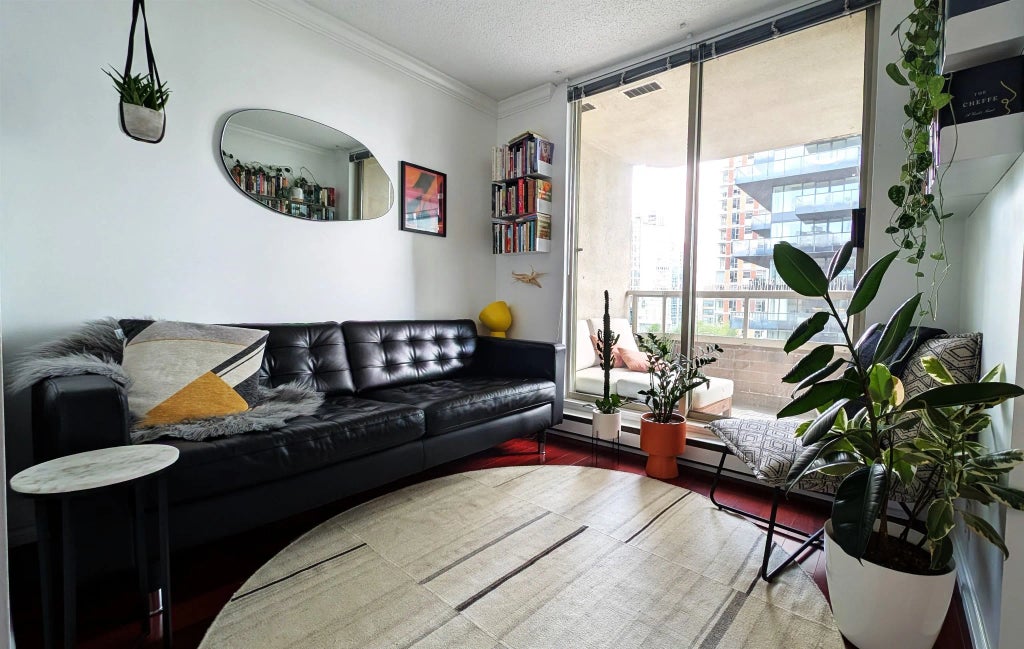

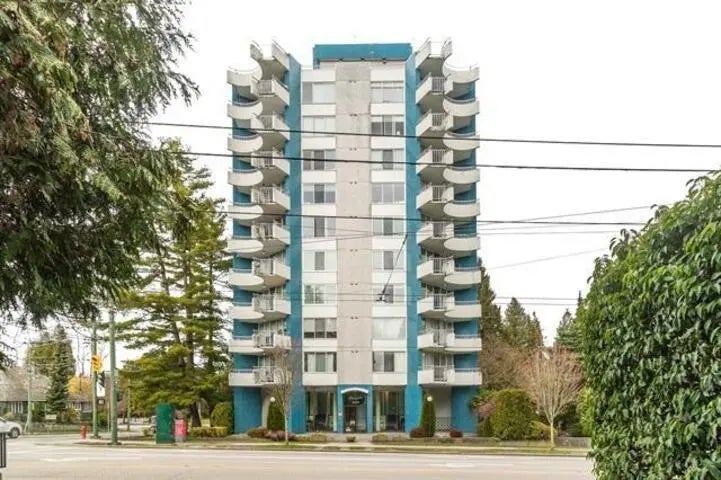
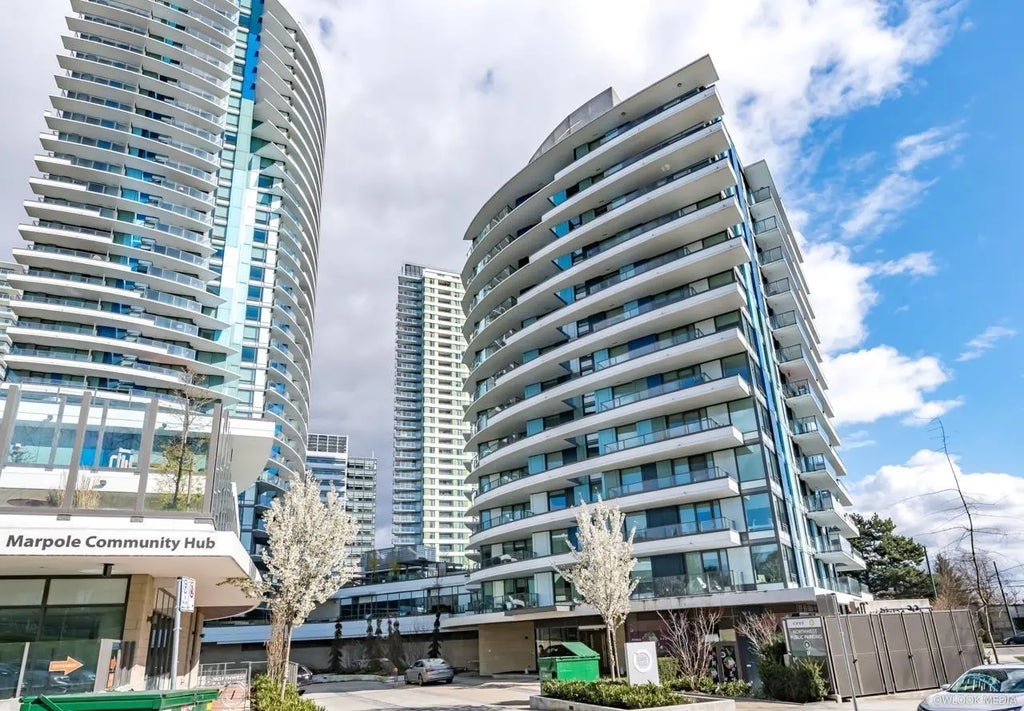
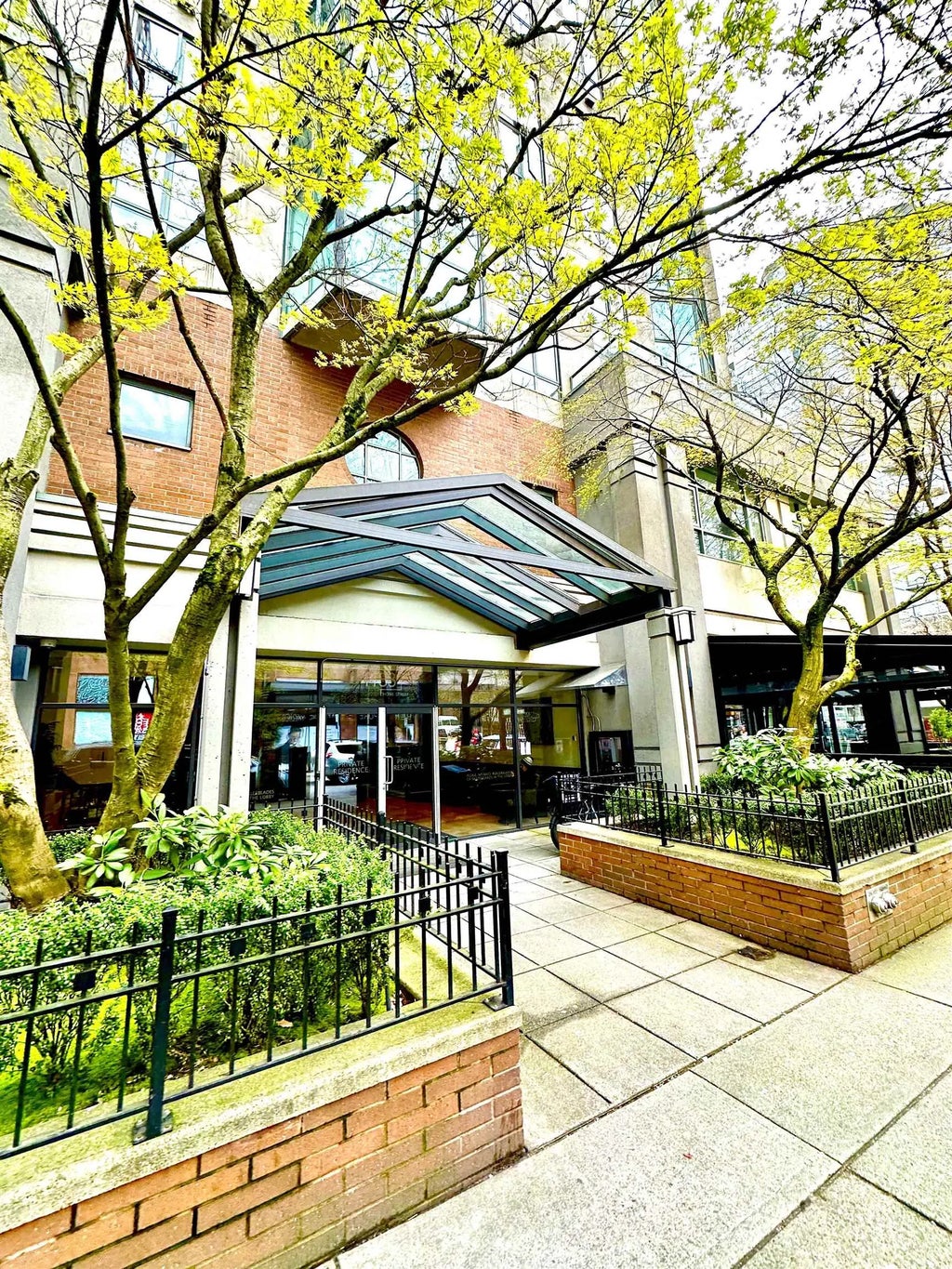
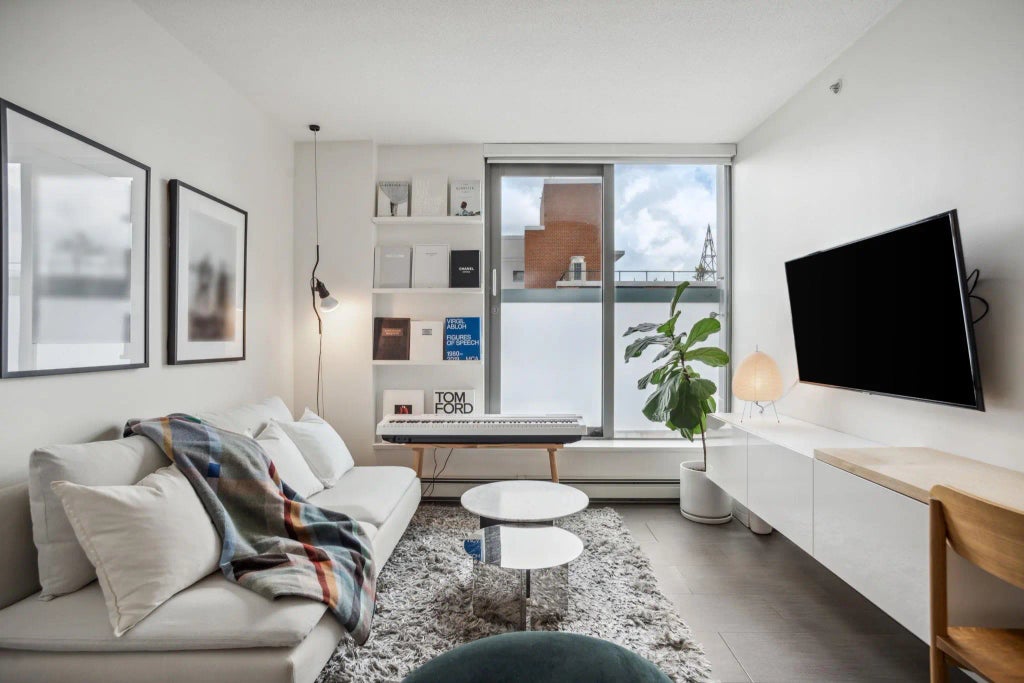
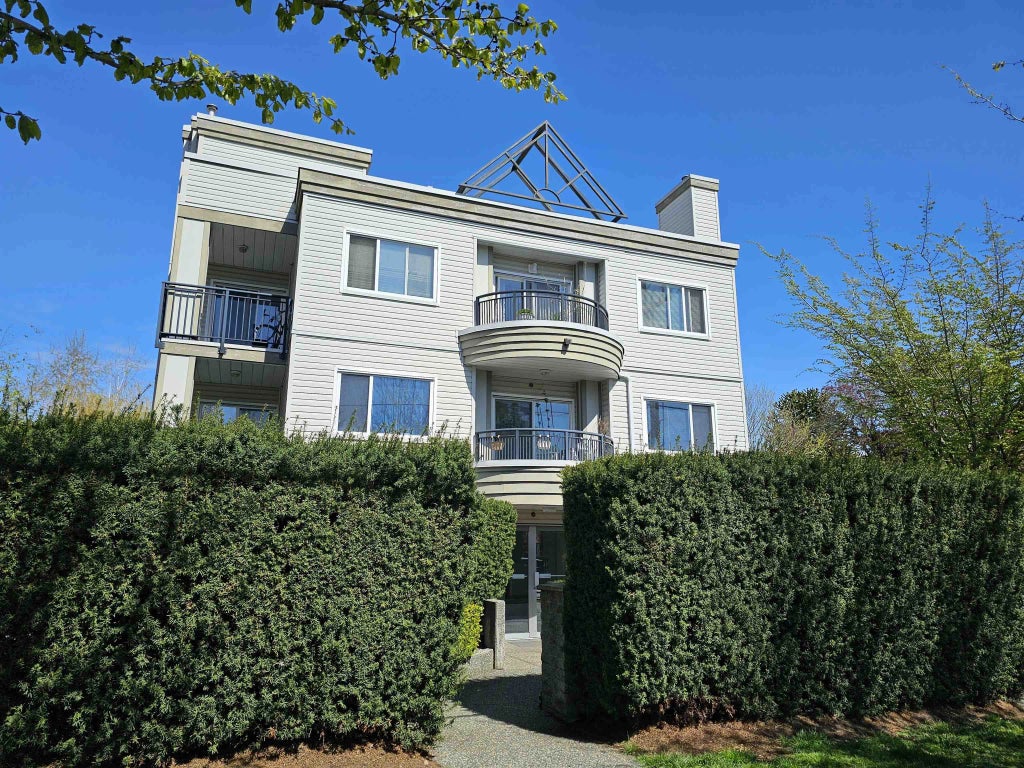
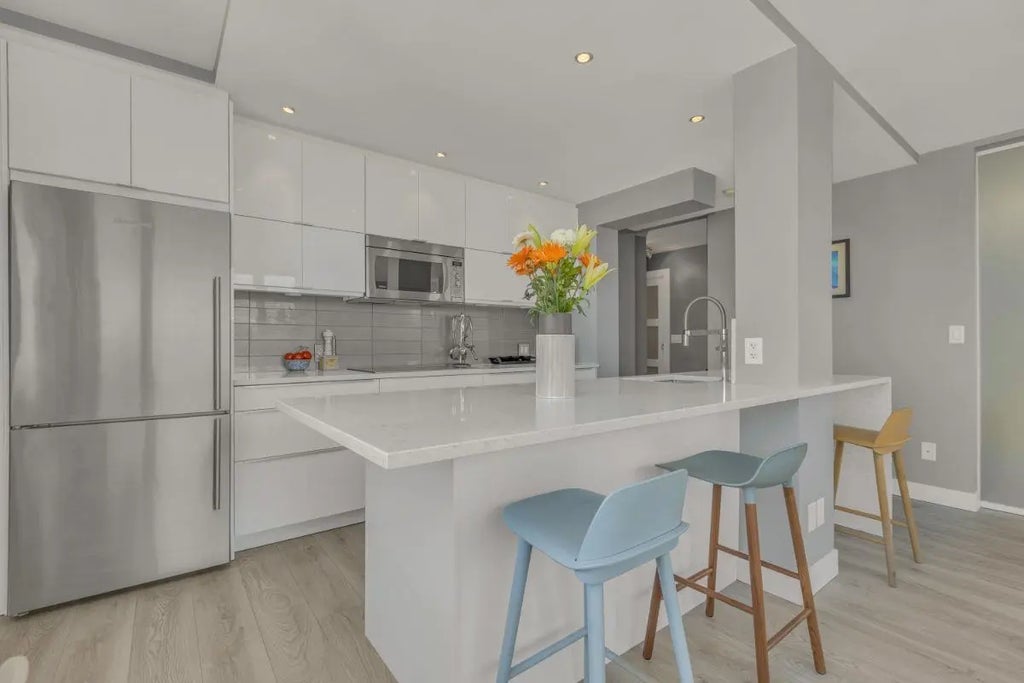
Leave A Comment